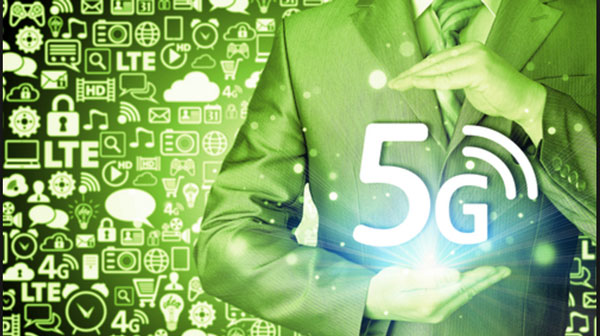
Barcelona, Spain | AFP |
Tech-savvy sports enthusiasts will get their money’s worth at next year’s Pyeongchang Winter Olympics where South Korea’s KT mobile operator wants to give spectators what it hopes will be their first 5G experience.
Telecom firms have long been racing to develop this new, fifth generation of mobile networks that is expected to enable lightning-quick downloads or driverless cars guided by automatic connections to traffic systems.
At the weekend launch of Barcelona’s Mobile World Congress, the world’s biggest mobile expo, Spain’s King Felipe VI said it would spark a “revolution in our lives and in the economy.”
Speaking Monday at the high-profile expo, KT chief executive Chang-Gyu Hwang promised that 5G would bring “dramatic changes.”
“KT will introduce brand new services that have not ever been possible with the radio technologies of the current generations,” a spokesman for the South Korean firm added.
Commercialisation of 5G is still not expected to start before 2020, as companies and governments negotiate to try to standardise norms between different countries for smooth 5G use worldwide.
Manufacturers must also build infrastructure that can carry mobile phone signals powerful and quick enough to unfailingly support split-second activities, such as surgical operations or automatic traffic movement.
But South Korea is planning to use the Olympic Winter Games in February 2018 to test 5G on the hundreds of thousands of spectators, providing them with access to very high definition content or virtual reality.
The current 4G standard enables fast broadband access via mobile smartphones, but government and manufacturers see the next generation enabling connection speeds up to 1,000 times faster than current ones.
“Operators are looking to 5G as a differentiator, especially in markets where LTE (4G) is ubiquitous” such as South Korea, says Dexter Thillien, an analyst at BMI Research.
– Marketing ploy? –
But as companies battle to reach the 5G Holy Grail, competition is more than stiff and South Korea runs the risk of being pipped to the post.
“We’re going to see pretty significant roll-outs of 5G in the United States, and the first commercial services could even be available by the end of the year,” said Frederic Pujol, a technology expert at the IDATE consulting firm.
This would only be a start, though, focusing on services that need high-speed connections such as 4K television which offers even better resolution than HD, or virtual reality — far from unlocking the Internet of Things such as driverless cars or talking fridges.
And experts point out that all is needed for this is to improve 4G capacity, which is what Thillien thinks will happen for the Olympics in South Korea.
“It will be pre-standards 5G,” he said.
“The Olympic launch is more a marketing ploy to say they were the first.”
Pujol disagrees. He believes that the South Koreans will have changed their mobile networks entirely, allowing them to be managed partly by the ‘cloud’ and no longer from physical computers.
The main risk for countries like South Korea that want to be pioneers is that the norms and frequencies they decide to use won’t, in the end, be those used at a global level.
“We know for example that the spectrum of frequencies that will be used in South Korea is not available in Europe but will be in the United States,” says Thillien.
Pujol adds that those countries and companies that are more advanced in developing 5G will seek to impose their own standards.
A race that ultra-connected South Korea won’t want to lose.
 The Independent Uganda: You get the Truth we Pay the Price
The Independent Uganda: You get the Truth we Pay the Price



